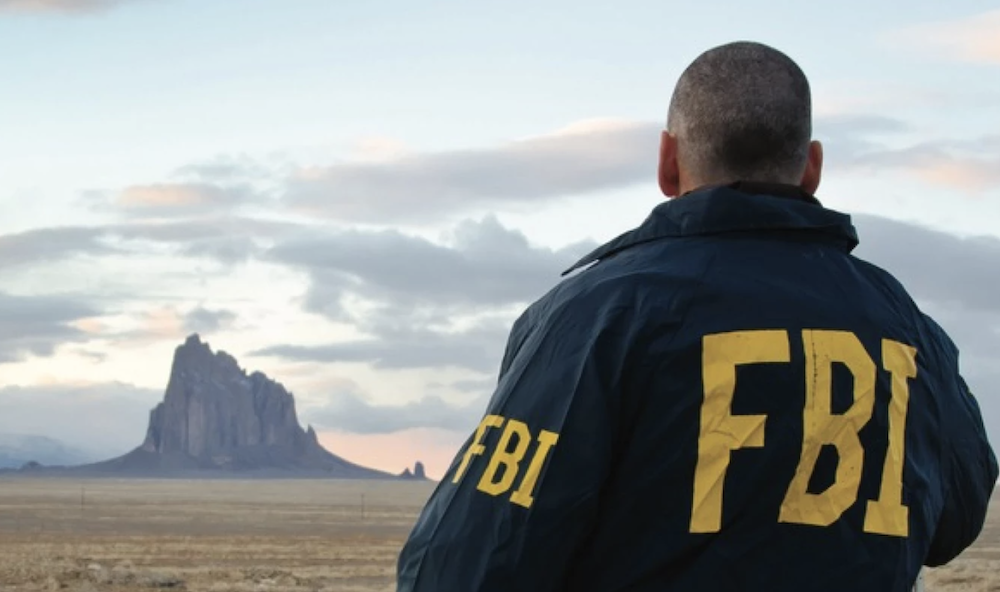
- Details
- By Native News Online Staff
The Albuquerque FBI Division on Friday released an updated list of missing Indigenous persons in New Mexico and the Navajo Nation.
As of October 11, the list has 192 names on it. The latest version of the list reflects the addition of 27 names and the removal of 18 since the previous list was released in September.
The list is part of a collaborative project that began in July, when the FBI and its partners released the first list with 177 names. The FBI said it initiated the effort to help locate missing individuals, increase transparency, and to encourage relatives of missing Indigenous persons who are not on this list to reach out to local law enforcement and file a report. The list is updated every month.
“The FBI launched this project back in July in collaboration with our federal, state, local, and tribal partners,” Special Agent in Charge Raul Bujanda said. “Since then, with the public’s help and through the hard work of law enforcement, we have been able to ascertain the location of many missing Native Americans. We continue to ask everyone to take a look at the list at fbi.gov/mmip, and if you have information about the whereabouts of a person on it, please contact your local or tribal law enforcement agency.”
If someone’s relative is included in the list of names, the FBI is actively checking numerous law enforcement databases and other sources nationwide to identify leads that will be quickly passed along to the appropriate agency.
If an Indigenous family member who is missing is not included in this list, the relatives are urged to contact their local or tribal law enforcement agency and ask them to submit a missing person report to NCIC.
For further assistance with their request, family members or law enforcement can contact the New Mexico Attorney General’s Office or the FBI at 1-800-CALL-FBI.
Partners involved in the project include the U.S. Attorney’s Office, Bureau of Indian Affairs Office of Justice Services, New Mexico’s Missing and Murdered Indigenous Women and Relatives (MMIWR) Task Force, New Mexico Attorney General’s Office, New Mexico Department of Public Safety, New Mexico Department of Indian Affairs, Bernalillo County District Attorney’s Office, and the City of Albuquerque Office of Equity and Inclusion.
The FBI also received information and support from the Navajo Nation, Native American pueblos, and local law enforcement.
More Stories Like This
Native News Weekly (August 25, 2024): D.C. BriefsUS Presidents in Their Own Words Concerning American Indians
Indigenous Actor Elaine Miles Reports Detention by Alleged ICE Agents
Happy Thanksgiving from Native News Online
Coming Up on Native Bidaské: Behind the Animation: Joey Clift Talks “Pow” and Native Storytelling
Help us tell the stories that could save Native languages and food traditions
At a critical moment for Indian Country, Native News Online is embarking on our most ambitious reporting project yet: "Cultivating Culture," a three-year investigation into two forces shaping Native community survival—food sovereignty and language revitalization.
The devastating impact of COVID-19 accelerated the loss of Native elders and with them, irreplaceable cultural knowledge. Yet across tribal communities, innovative leaders are fighting back, reclaiming traditional food systems and breathing new life into Native languages. These aren't just cultural preservation efforts—they're powerful pathways to community health, healing, and resilience.
Our dedicated reporting team will spend three years documenting these stories through on-the-ground reporting in 18 tribal communities, producing over 200 in-depth stories, 18 podcast episodes, and multimedia content that amplifies Indigenous voices. We'll show policymakers, funders, and allies how cultural restoration directly impacts physical and mental wellness while celebrating successful models of sovereignty and self-determination.
This isn't corporate media parachuting into Indian Country for a quick story. This is sustained, relationship-based journalism by Native reporters who understand these communities. It's "Warrior Journalism"—fearless reporting that serves the 5.5 million readers who depend on us for news that mainstream media often ignores.
We need your help right now. While we've secured partial funding, we're still $450,000 short of our three-year budget. Our immediate goal is $25,000 this month to keep this critical work moving forward—funding reporter salaries, travel to remote communities, photography, and the deep reporting these stories deserve.
Every dollar directly supports Indigenous journalists telling Indigenous stories. Whether it's $5 or $50, your contribution ensures these vital narratives of resilience, innovation, and hope don't disappear into silence.
 The stakes couldn't be higher. Native languages are being lost at an alarming rate. Food insecurity plagues many tribal communities. But solutions are emerging, and these stories need to be told.
The stakes couldn't be higher. Native languages are being lost at an alarming rate. Food insecurity plagues many tribal communities. But solutions are emerging, and these stories need to be told.
Support independent Native journalism. Fund the stories that matter.
Levi Rickert (Potawatomi), Editor & Publisher

